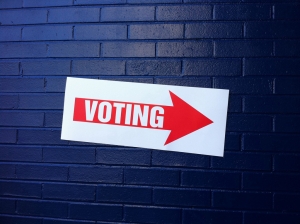Some of prisoners’ human rights are protected by law, including the right to life and the right to a fair trial. Others, such as the right to privacy and property, are lost when a jail sentence begins. One of the most controversial questions on rights in prison is whether inmates should be allowed to vote. The European Court of Human Rights has repeatedly ruled that the UK’s blanket ban on prisoners voting is unlawful, and parliament has repeatedly ignored their ruling. But there have recently been signs that the ban will finally be lifted and at least some people in prison will have the opportunity to participate in the democratic process.
What is the Law on Prisoners Voting in the UK?

Image by: JustGrimes, Flickr
According to the current law, the Representation of the People Act of 1983, convicted prisoners cannot vote in any elections. People who are being held on remand and have not been convicted do have the right to vote via postal ballot but in reality, very few do.
There are a number of anomalies when it comes to the ban on prisoners voting. Offenders who have been given a suspended sentence can vote, and prisoners regain the right to vote when they are released from jail on licence. Inmates whose sentences fall between two general elections can vote in both – which arguably creates a lottery on voting rights for offenders.
Can Prisoners Vote in Europe?
Britain is the only nation in Western Europe to have a blanket ban on voting for prisoners, with only Russia, Bulgaria Armenia, Georgia and Hungary in the Council of Europe imposing similar rules. Other countries, including Belgium, France and Germany, ban voting for inmates convicted of certain crimes, such as terrorism or treason.
High Court Ruling on Voting for Prisoners
While serving a life sentence for manslaughter, John Hirst challenged the blanket ban on prisoners voting at the European High Court in Strasbourg, and won. The court ruled that the ban was contrary to article 3, protocol 1 of the European convention on human rights, which guarantees the right to free and fair elections. But in 2011, MPs rejected a proposed amendment to change to the law by 234 to 22.
Whether prisoners should be allowed to vote has always been a controversial issue. Traditionally, politicians have defended the theory that offenders should forfeit basic rights when they are convicted. (David Cameron even went as far as saying that the prospect of giving inmates the vote made him feel “physically sick”.)
Blanket Ban on Voting for Prisoners to be Lifted
Last Autumn, it was reported that the government is considering scrapping the blanket ban on voting for prisoners – 12 years after the European High Court ruled it unlawful. During his time as justice secretary, David Lidington is said to have circulated plans to allow prisoners who are on day release or serving sentences of less than a year to vote.

Keeping Prisoners and Families connected
References
https://rightsinfo.org/prisoners-still-afforded-human-rights/